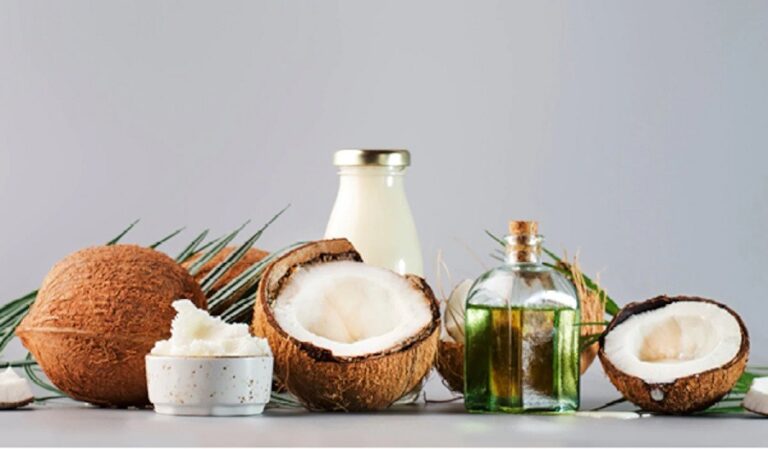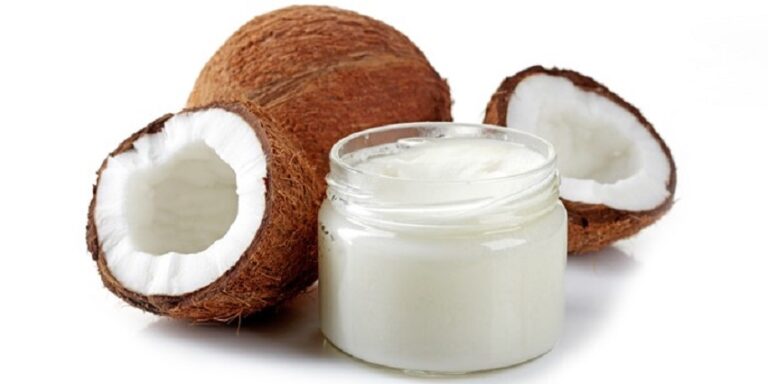Avoiding trans fats is one of the first rules of healthy eating.
Trans fats are very stable and tend to accumulate in the arteries. For this reason, it is claimed that they are bad for our bodies. The consequences of eating trans fatty acids are much more severe than that of eating saturated fat.
In this article, you can see a list of foods with trans fats and what are the consequences of eating them regularly.
Trans Fats: What Are They?
Trans fats (or trans fatty acids) are an unhealthy fat type obtained from the hydrogenation of vegetable oils. These types of fats are obtained synthetically.
The term trans fat has nothing to do with trans fat. The word trans corresponds to the chemical configuration of molecules.
One of the consequences of eating trans fats is increasing the levels of cholesterol and triglycerides in the blood. (7)
Excluding foods with trans fats is essential both to maintain optimal health and to lower body mass index.
What Foods Have Trans Fat?
Trans fats are found in foods with hydrogenated vegetable oils (some can be as high as 25-40%).
Trans fats are formed after heating vegetable oils at high temperatures and for long periods. In these cases, they can reach up to 3% of total fat values. (7)
In smaller amounts, this type of fat can also be found in nature, such as whole milk and animal meats.
On the other hand, margarine was high in trans fat at the time. Today most brands have modified the processes so that this does not happen.
Industrial popcorn, frozen pizzas, and fried foods are other foods high in trans fat. This is up to 5g per serving. Below you can see a list of foods with trans fats:
- Margarine (not all types)
- Processed meat products
- Fried foods (both homemade and purchased)
- Bakery products (donuts)
- Crackers crackers
- Simile chocolate and cup chocolate
- Popcorn industrial
- Frozen pizzas
- Chantilly creams
- Unhealthy snacks and fast foods
Trans fats in margarine
Margarine was a popular product known for its trans fat content. In the beginning, vegetable oil was subjected to an intense heat process.
At present, the producers have modified the process, significantly reducing the content of total trans fatty acids.
The new margarine is high in unsaturated fatty acids, and even some brands are free of trans fats. (6) However, they are still high-calorie food, so they should not be abused either.
Trans fats in fast foods
Trans fats are found in most fast foods and fried foods. Frozen products such as pizzas and some types of ice cream tend to have fat in their composition.
The classic French fries in partially hydrogenated vegetable oil usually have a significant percentage of trans fatty acids.
In addition, poor quality red meats and sausages and fast foods tend to have a high percentage of trans fat. The greater the number of times the oil is used, the greater the number of trans fatty acids obtained in the final product.
Harms and consequences of trans fats
The most important international organizations recognize the health damages of trans fats, and several studies recommend excluding them from the diet. (1,3,6)
Approximately 540,000 deaths worldwide are due to the consumption of industrially-produced trans-fatty acids. (7)
Since 2010, international authorities have insisted that the number of trans fats in food must be regulated and necessarily indicated on the nutritional value label that appears on the packaging.
Currently, Canada, the USA, the European Union, and other countries establish an upper limit of no more than 2% for the amount of total fat in food. The equivalent of a maximum of 2 grams per day. (1,2,7)
This type of fat consumption is associated with all kinds of damage to metabolism and cardiovascular diseases. The consequences of consuming trans fats are:
- Increase the risk of coronary events
Regular consumption of trans fatty acids increases mortality from coronary heart disease by up to 28%. (1) These unhealthy fats tend to accumulate in the arteries. In other words: one of its consequences is not only gaining weight but also reducing life expectancy.
- Increase the concentration of bad cholesterol
LDL is the bad cholesterol. It is considered high when its values are above 130 mg / dL. Lowering bad cholesterol is essential to avoiding severe cardiovascular diseases.
- Reduce the concentration of good cholesterol (LDL)
One of the consequences of trans fats is lowering good cholesterol. To reverse this situation, not only should you reduce fatty foods but also begin to incorporate cardio exercises into your routine.
- Increased likelihood of cancer
Trans fats are carcinogenic. One of its consequences has been proven to increase the likelihood of certain types of cancer, such as breast cancer. (3.8) This is one of the most dangerous damages since they are not noticeable or cause symptoms.
- Increase the risk of type 2 diabetes
One of its consequences is inflammation and type 2 diabetes. Although there is still more research to establish the relationship between diabetes and this type of fat, everything indicates that foods with trans fats should be avoided in a diet for type 2 diabetics.
- Cause hormonal imbalances (testosterone and estrogens)
High consumption of foods with trans fats directly affects testosterone levels in men and estrogen in women—one of the main reasons to avoid them from the diet.
History of trans fats
The history of trans fats began with searching for a cheap substitute for butter. In 1901 an industrial process was created from palm oil.
This oil is liquid and viscous in consistency in nature. Through the passage of nitrous acid and boiling oil bubbles, engineers turned it into a solid substance and had a pleasant taste on the palate.
The result: the first margarine. It was widely used in industry and sold on a large scale. Margarine has gotten a bad rap for being high in trans fat. Nowadays, the processes have been modified, so believing that this food is high in trans fat is incorrect.
ABSTRACT
- Trans fats are a type of unhealthy fat. They are formed from vegetable oils heated at high temperatures.
- Where are trans fats found? Processed meat foods, fried foods, margarine, cookies, and industrial bread.
- This type of fat is also found naturally in whole milk and red meat in trace amounts.
- The damages and consequences of trans fats in the body are various. The increase in bad cholesterol, a greater probability of heart attacks, and certain types of cancer are the most severe consequences.
- The content of trans fatty acids in the diet should be 2% of the total calories, the equivalent of 2 g per day.







